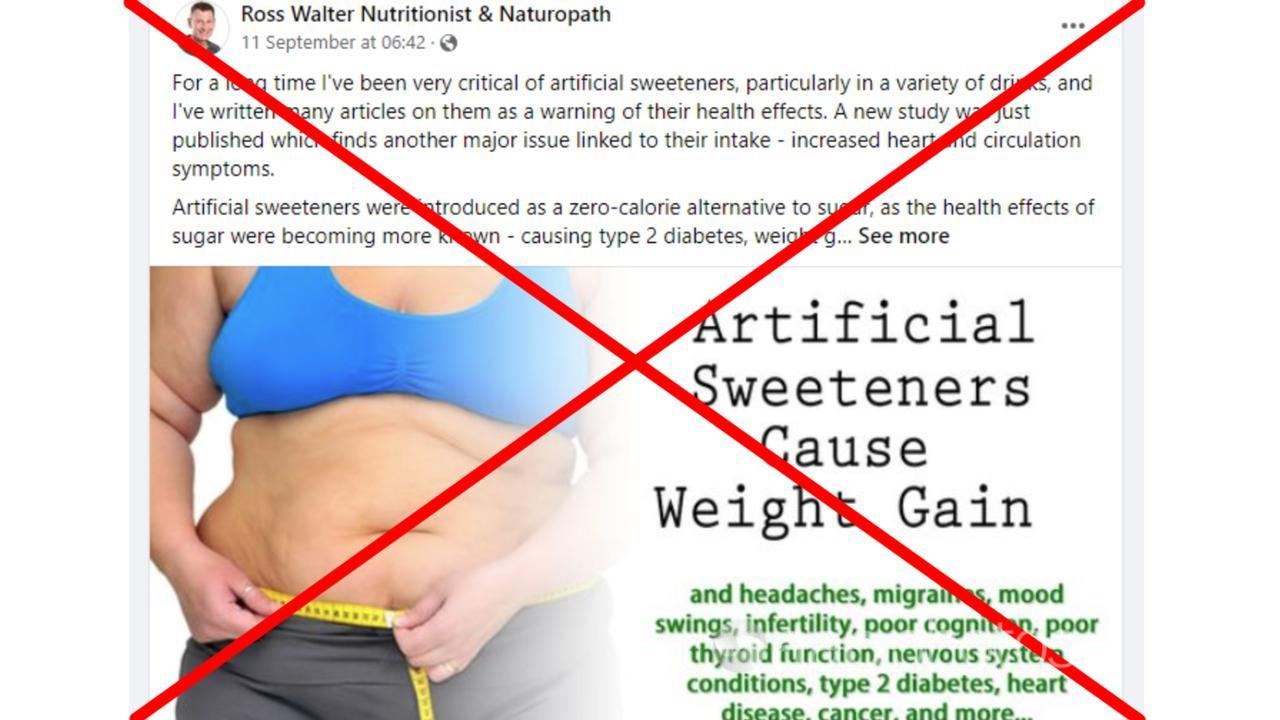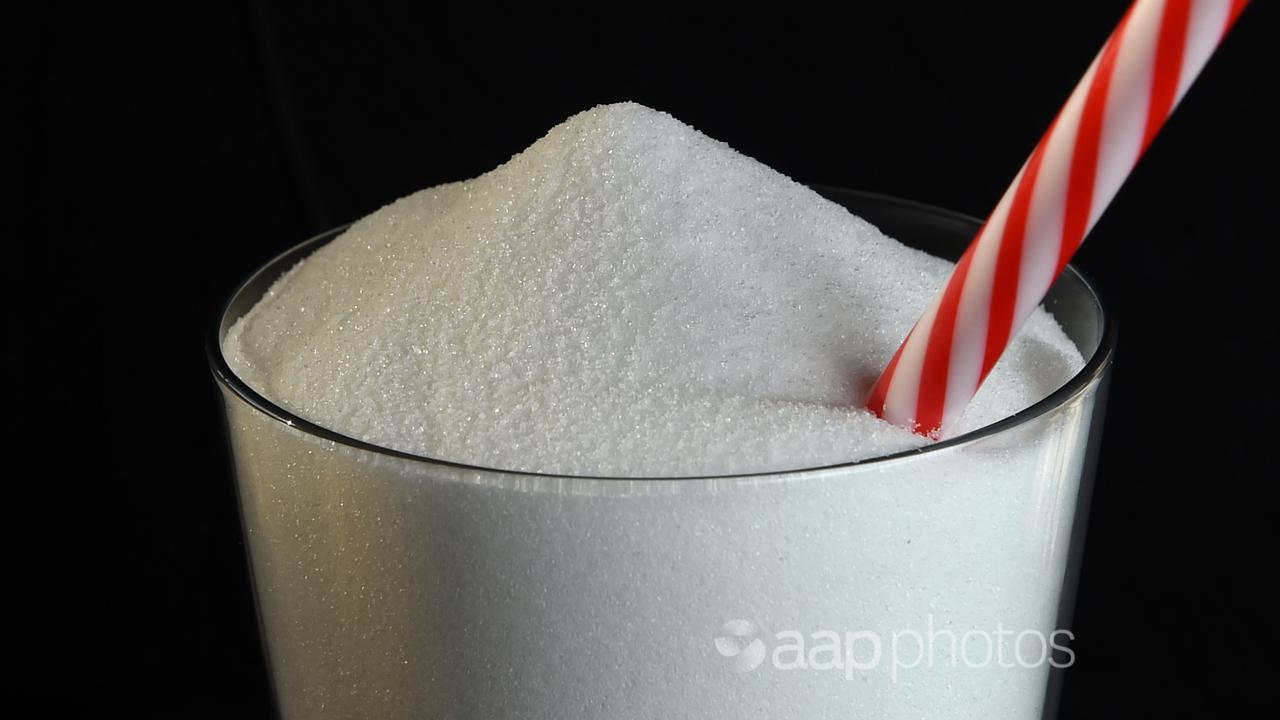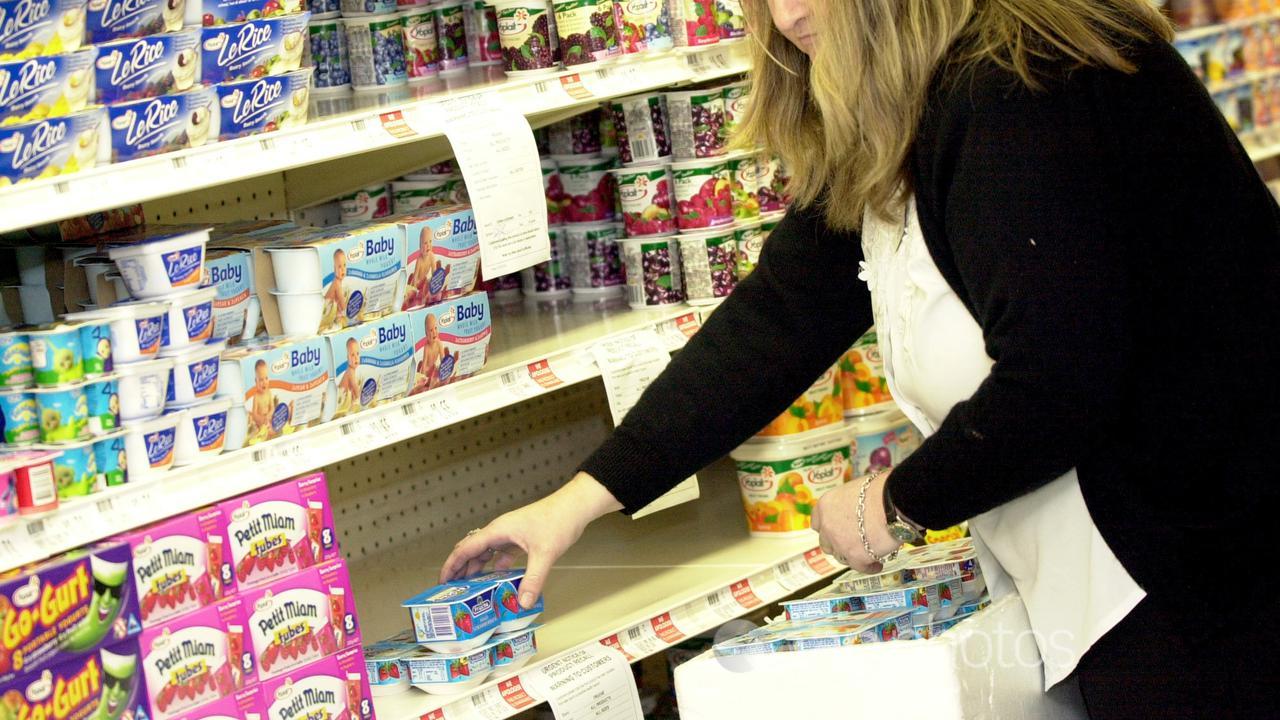A Facebook user is warning against artificial sweeteners, claiming they can increase the risk of cancer and other serious health issues.
However, cancer experts say otherwise. They recommend people have a healthy diet and steer clear of highly processed food and drinks, but say studies show artificial sweeteners are safe to consume within daily limits.
The post by the Ross Walter Nutritionist & Naturopath page says “artificial sweeteners have a much more serious effect on your health than sugar” and lists several problems including that they “increase the risks of cancer”. The post links to a French study as a reference.

However, the claim is false. Experts told AAP FactCheck there is no conclusive evidence which proves sugar substitutes cause cancer.
Ian Musgrave, a molecular pharmacologist at the University of Adelaide, says artificial sweeteners are often “demonised” and feed into the public’s distrust of “chemicals and artificial additives” in food.
Dr Musgrave pointed to several studies (here, here, here, here and here), which have explored whether artificial sweeteners cause cancer.
“Overall, the weight of evidence from multiple sources provides no evidence for artificial sweeteners causing cancer in humans,” he said in an email.

Professor Luigi Fontana, a physician scientist and expert in nutrition at the University of Sydney, said the French study – Artificial sweeteners and cancer risk – is “interesting”, but “not conclusive”.
This is because “epidemiological studies are by nature observational rather than experimental, and the observed associations do not imply a cause-effect relationship”, he told AAP FactCheck in an email.
Prof Fontana said the data in the study aligned with animal data, demonstrating a potential pro-cancer effect of artificial sweeteners. Results from animal studies suggested aspartame was associated with higher risks of different cancers and carcinomas at dose levels comparable to those to which humans can be exposed. However, he says these findings have been controversial.
Dr Musgrave added that when research is conducted, there are minor results in animal studies at concentrations and exposure times that are “irrelevant to humans and are blown out of proportion”.
Clare Hughes, chair of the Cancer Council NSW’s nutrition and physical activity committee, says while some studies raise concern that consumption of intense sweeteners increases the risk of certain cancers, other studies report no association.
“Currently, there is no evidence that the intense sweeteners permitted in the food supply cause cancer or are unsafe in the levels permitted and doses typically consumed,” Ms Hughes told AAP FactCheck in an email.
She says sweeteners are strictly regulated by Food Standards Australia and New Zealand (FSANZ), which “carries out safety assessments based on evaluations and acceptable daily intake levels set internationally”.
Ms Hughes says the World Cancer Research Fund also notes no strong evidence drinks made with intense sweeteners cause cancer, but the International Agency for Research on Cancer identified aspartame as “a high priority for further evaluation”.
“FSANZ has not assessed the consumption levels of intense sweeteners in Australia since 2003,” she said.
“Drinks, tabletop sweeteners, and yoghurts were the top sources of intense sweeteners in the Australian diet. A more recent study into the Australian food supply found an increase in the proportion of food and beverage products containing intense sweeteners from 2015 to 2019.”
She said foods and drinks containing intense sweeteners were usually highly processed and the Cancer Council encouraged people to eat more vegetables, fruits, legumes and wholegrain cereals to reduce the risk of developing cancer.

Professor Michael Barton, a radiation oncologist at UNSW Sydney, also told AAP FactCheck in an email that well-researched sources do not support the post’s claim.
Prof Barton pointed to the Cancer Research UK website, which states: “No, the best evidence shows that artificial sweeteners, like aspartame, do not increase the risk of cancer… Your overall diet (what you eat day-to-day) is more important than individual ingredients or foods for reducing your cancer risk.”
AAP FactCheck has previously debunked other health claims by Mr Walter (see here, here, here, here and here).
The Verdict
The claim artificial sweeteners increase the risk of cancer is false. Multiple studies show there is no evidence linking them to cancer. Food safety authorities and experts told AAP FactCheck that artificial sweeteners don’t cause cancer and are safe to consume within the average daily intake.
False – This claim is inaccurate.
* AAP FactCheck is an accredited member of the International Fact-Checking Network. To keep up with our latest fact checks, follow us on Facebook, Twitter and Instagram.
All information, text and images included on the AAP Websites is for personal use only and may not be re-written, copied, re-sold or re-distributed, framed, linked, shared onto social media or otherwise used whether for compensation of any kind or not, unless you have the prior written permission of AAP. For more information, please refer to our standard terms and conditions.


















